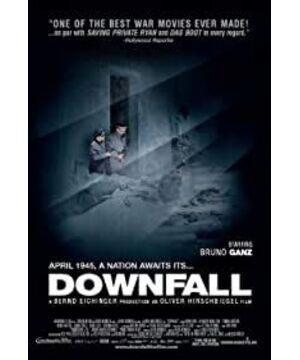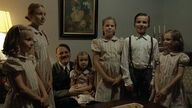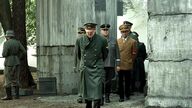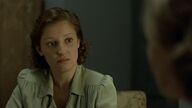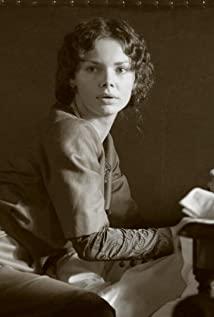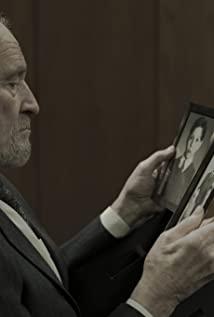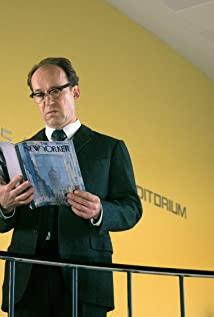It's time to write a review for this rare and wonderful film.
The Destruction of an Empire has been critically acclaimed since its release, winning the Oscar for Foreign Language Film. The most worthy of recognition is not the excellent techniques and plot performances, but the whole film is synonymous with the long-term evil and anti-humanity like Nazi Hitler. It does not symbolize them but depicts them as people, and reflects these in the final moments. Fear, despair, and somewhat tenderness of man as man. And they don't shy away from their evil deeds and outrageous ideas. This is the true presentation of this history and characters, and it can also wake up later generations the most. The most anti-human acts in the world are committed not by demons but by humans.
Bruno Ganz's Führer has no flaws, except that he has both form and spirit to make people feel that this is Hitler himself. It more perfectly reflects the two sides of the character. On the one hand, he is gentle and courteous in private and has a certain charisma. On the other hand, he resolutely implements his social Darwinism when dealing with the overall situation as the head of state. Believing in this idea, he wanted to execute Figlein, who fled, and gave the children who participated in the war the military merits that this was a matter of course. It is rare that the whole film does not dehumanize Hitler's simple devil or clown like the common propaganda including Chaplin's "The Great Dictator", and even depicts a side that is easy for people to get close to and admire. Many people who assist him are also human, and even ordinary people are attracted by him and are willing to die for him. This allows the audience to not simply classify him as an alien and separate him from a non-human point of view. Rather, they reflect on and confront their own evils of human nature from the perspective of their own kind, not only do not embark on this path, but also do not blindly incite and brainwash them.
Of course, no matter how plump Hitler was, it would be superficial to concentrate only on him and his sins. In addition to Hitler, the other top Nazis in the film are also portrayed in this way. Even the scene in which Mrs. Goebbels, the most inhumane in the whole film, poisoned her own children to some extent showed that she had some entanglement and intolerance in her heart, but she did not stop her heinous behavior because of this. Eva burst into tears when she begged Hitler to let Figein go, and said that it was all over. All of these show that these people are not completely dehumanized in their hearts, but are either overcome by cowardice and blind obedience, or they simply regard poisoning their children as the best result because of their distorted beliefs. In the end, everyone knew that there was no hope, and many officers continued to fight for Hitler's ideas and refused to make peace. After all, they were on the same boat as Hitler, and they couldn't get away from this idea and to gain benefits, so they had no way out. Unlike the head of state, many of them have to be sober, and some even run away. But not to mention their previous sins, this moment cannot go back for their own interests and beliefs. However, because of the selfishness and pride of these people, they also dragged on too many innocent sacrifices on both sides. Although some people have something worthy of pity, it is still embarrassing that they are still committing serious sins without knowing it in the end. I used to think that "Schindler's List" and "Blood and Tears in the Concentration Camp" portrayed bloody murderers like Amon Goethe and Maria Mandel too softly and beautified. They are also human beings who commit such crimes, so they should think more deeply and prevent such tragedies from happening again.
At the same time, the film is extended to ordinary Germans. For example, the nurse who cried to the Fuhrer, the doctor with conscience, the little boy and the anti-aircraft artillery unit he belonged to, not only wrote about the devastation of the war on civilians, but did not completely separate ordinary people and Nazis as completely innocent sheep . Too many of them support the Führer from the bottom of their hearts and are willing to be the butcher's knife in his hands, even if they become cannon fodder, they will not look back. The scene where the little girl, like the little boy in the same camp, saluting and forcing her colleague to collapse herself, fully embodies this duality, and it is truly heart-wrenching to watch. There are still many people who are as obsessed with death as the Nazis at the end of the war. In addition to Hitler's charisma, it is also related to the brainwashing of his ideas that fits the inner needs of many people. The film also said from Goebbels and Hitler that "the Germans chose the Nazis". Of course, this needs to be divided into two parts. Not all German people chose the Nazis, and they are not obliged to die like Goebbels Hitler said. However, the rise of the Nazis and countless acts of anti-humanity did require a generation of Germans to carefully reflect on their contribution to it rather than stay out of it, and people all over the world should learn from it. The reason why the Nazis or any group should not be dehumanized is also to avoid feeling guilty for losing the basic bottom line of the group and generalizing all individuals. Jews were victims. In history, not only World War II, but too many tragedies are without the dementia of ordinary people under the collective frenzy. The Nazis who took advantage of them were not the first nor the last.
The choice of the film to put the main point of view on Mrs. Jung is also meaningful, and it is also the most outstanding place in this film. From the first time I saw the spoof, I thought she didn't look like a Nazi German at all, especially with her big, round eyes and such a soft outline that she was completely off the set. It should be the director's intention to connect with her position and meaning in the film. In the whole film, she is represented as an "ordinary person with wisdom and basic conscience". When she finally escaped, she showed through her behavior that she was an ordinary person who had no knowledge of the battlefield. Her family and friends were well aware of the sinister nature of the Nazis, and she clearly disapproved of many of Hitler's ideas, and she did not belong to the kind of people who were brainwashed into butcher knives. However, out of Hitler's own charm and the human touch that people around her showed to her, she not only worked for Hitler, but even believed that there was still a turn for the war, and even made the extremely irrational act of choosing to stay with Hitler at the last moment. . In the end, she fulfilled her obligations to her friends and colleagues to others. From the human side, this character is undoubtedly positive, but objectively she has become an assistant to the core of the Nazis. It is precisely by depicting that such women with good personalities and rationality will be involved in it, so that they can have a deeper understanding of this history. At the end of the film, Mrs. Jung's real words are used to express her understanding of the evils of the Nazis after the war, and she also reflects that her youth is not the reason. However, although they cannot be compared with heroes such as Schindler and Gustav Schroeder, people like Mrs. Jung are already a better group in reality. It is not only difficult to be criticized by doing the best on the human side, but also to actively reflect on yourself after understanding the facts. It can be seen that her default is to think from multiple angles to have a clearer understanding of the overall situation.
The character presented also fits perfectly with the theme of the film. Just as Germans disapprove of Hitler's ideas even if their personal character is so personal, lack of empathy and multi-dimensional thinking will also become unwitting accomplices. Likewise, modern people cannot only consider themselves and those around them. Only by empathizing with other groups (even the Nazis) and understanding and examining them from multiple perspectives from a human perspective will they avoid repeating the mistakes of the Nazis towards the Jews. Mrs. Jung is a perfect mirror in the film and in reality to always warn future generations.
"The Destruction of Empires" restores the Nazis to human beings, instead of whitewashing them, but instead facing up to the tragedy rather than evading or blaming one person. Only by seeing the ordinary side of the wicked can we see the same evil in the heart of ordinary people and prevent the tragedy from happening again. This film is one of the best World War II films so far precisely because its morals are not only thorough, but even beyond World War II and Hitler and others themselves are worthy of self-examination by people of any era, refusing to repeat similar tragedies.
View more about Downfall reviews


